Relevant Themes
EduArchsia and Senvar 2019, as a joint forum, invite scholars, educator, and actors on AEC industry to discuss topics of knowledge, excel practices for innovation, and challenge definition, concept, and practices on the sustainable industry on the context of digitalization and its impact. We propose three major topics of discussion :
1. Educating New Generation of Architects, Engineers, and Experts on Construction.
The topic invites discussion and exposition of advancement and experimentation on architectural and engineering education. Studio as a capstone education system is now challenged by the rise of the new generation of students, new tools and applications as well as new ways of interaction. Education as a learner community must redefine the actor’s role and mode of interactions as well as the knowledge we use, transmit, modify and develop in order to meet the current temporal and spatial contexts.
2. Defining Sustainability in AEC 4.0.
The seventeen Sustainable Development Goals are not mere a target of bureaucratic venue but also a venue of discussion of all aspect of the business. The AEC 4.0 pushes the definition of sustainability as the speed and proliferation of automation and digitalization to provide new tools, materials, and technologies as well as changing of actors’ profile.
3. Locating Innovation in AEC 4.0.
Innovation in the industry will expand our knowledge horizon to excel in future technology as well as education. But perhaps more important is to develop their positive impact on the environment and society through incorporating the notions of sharing economy, circular economy and creative economy as integrated package of innovation, appropriate advancement of technology that reduce residue as well as participative and open social engineering to reduce environmental and social stress created by the speed of change as the result of AEC 4.0.
We also invite different perspective of the topic that includes but not necessarily limited to the aspect of :
a. History and Theory
b. Housing and Urbanism
c. Building Science and Technology
d. Digital Technolgy and Smart Environment
e. Advocacy and Profession
